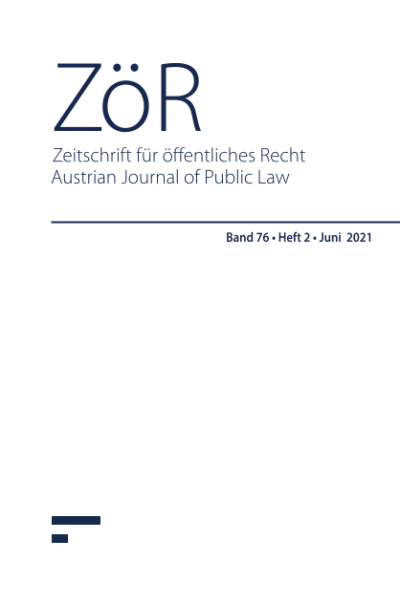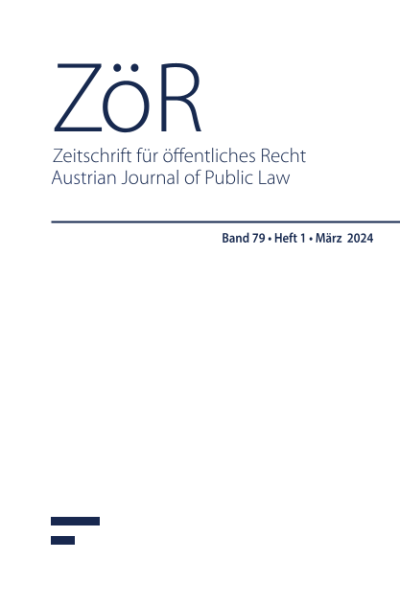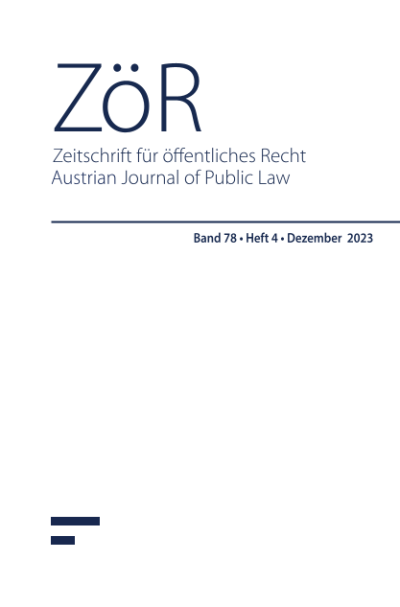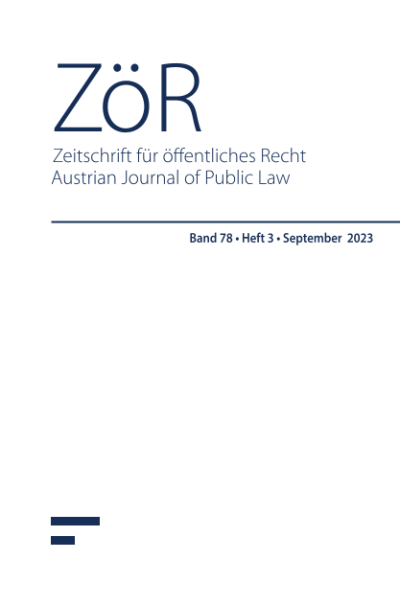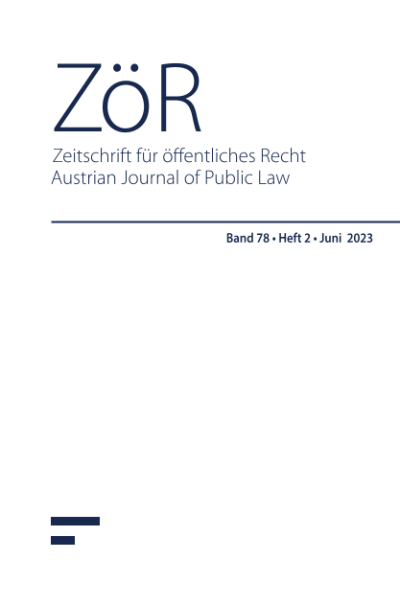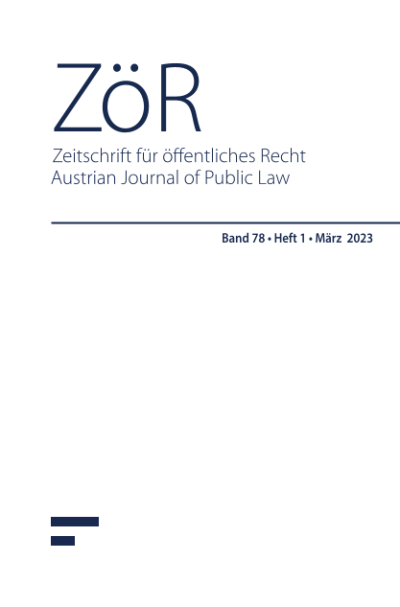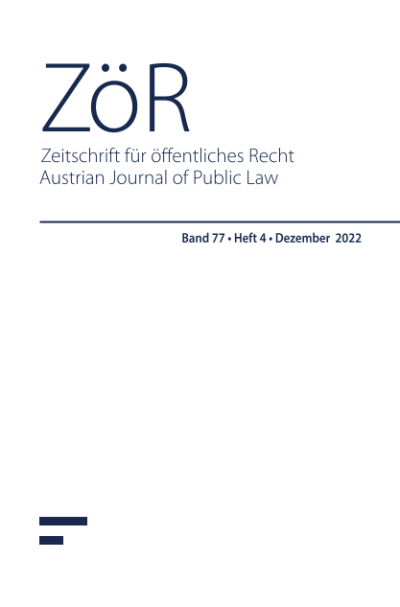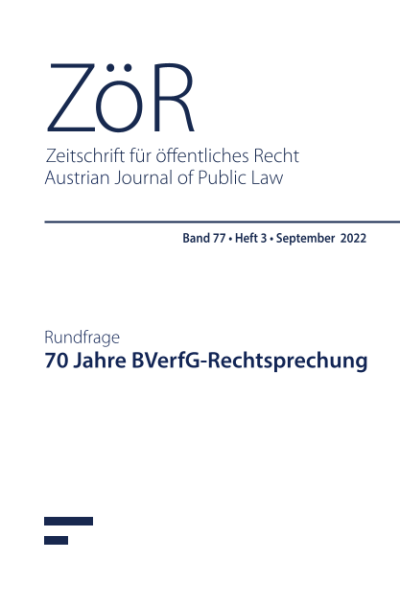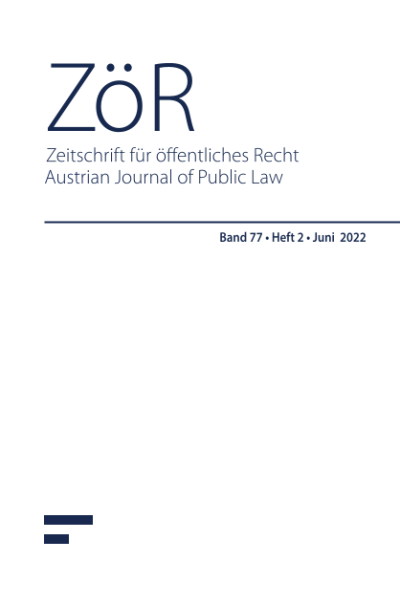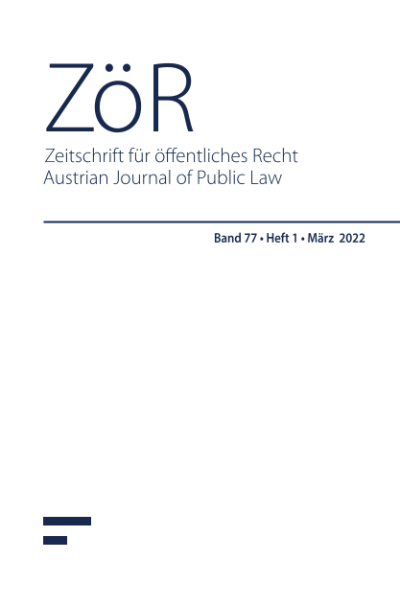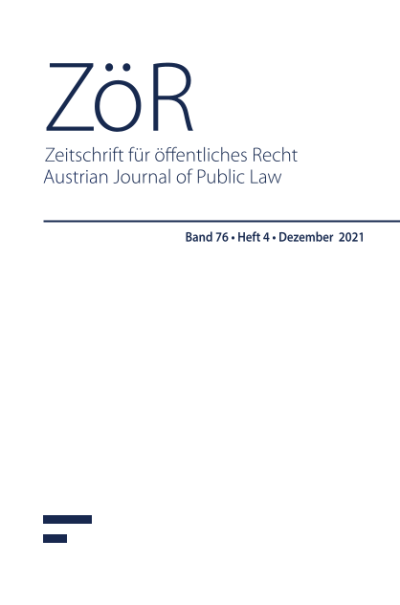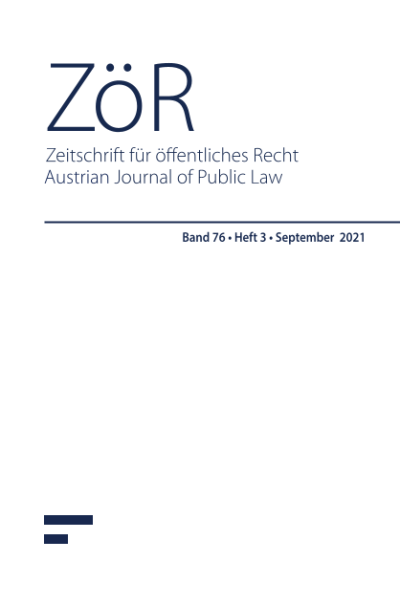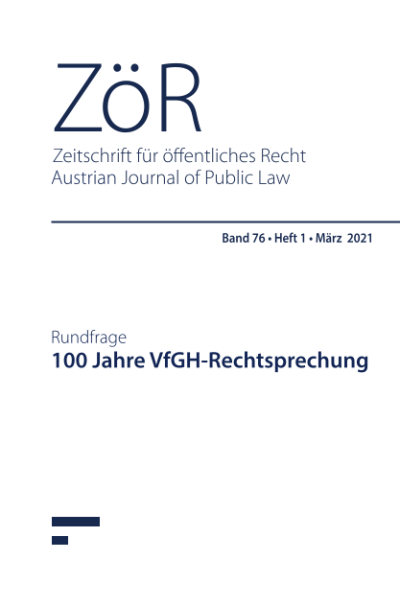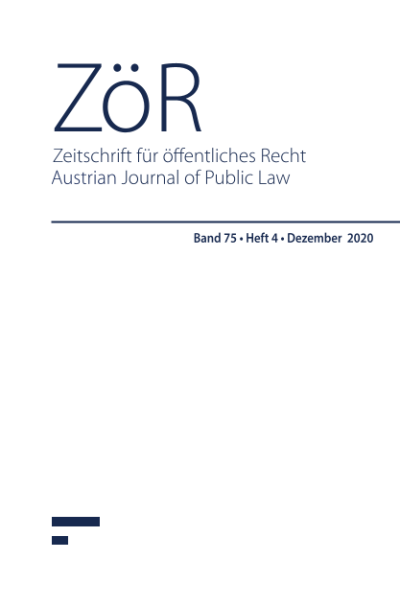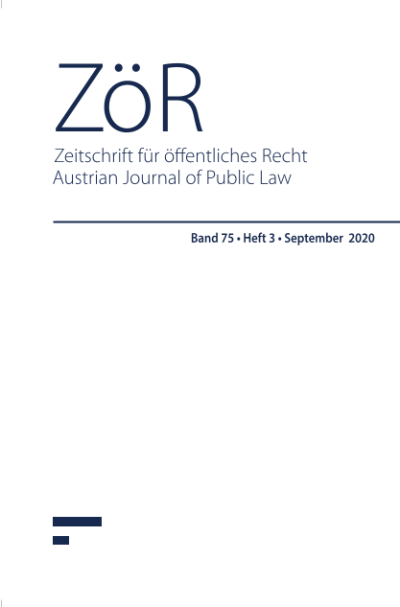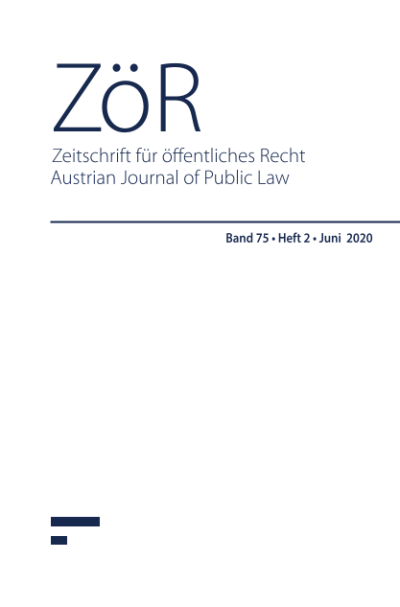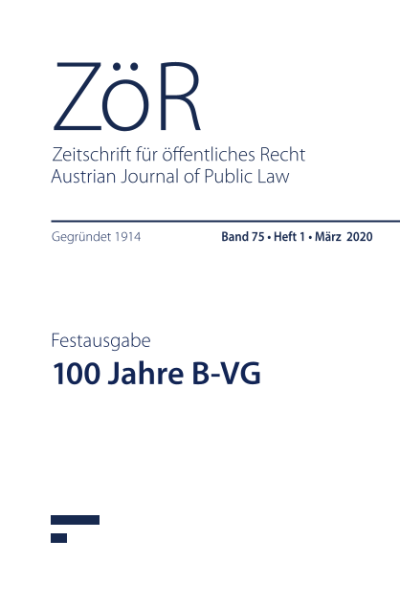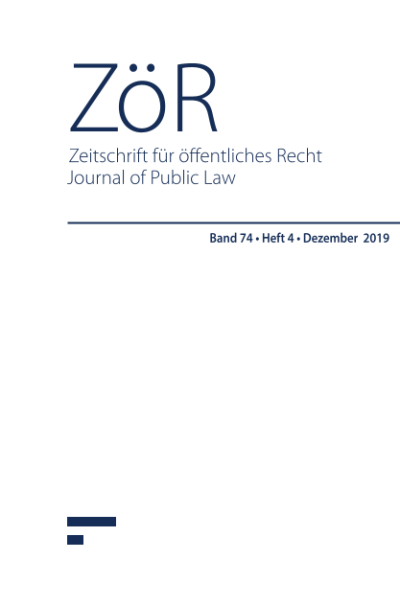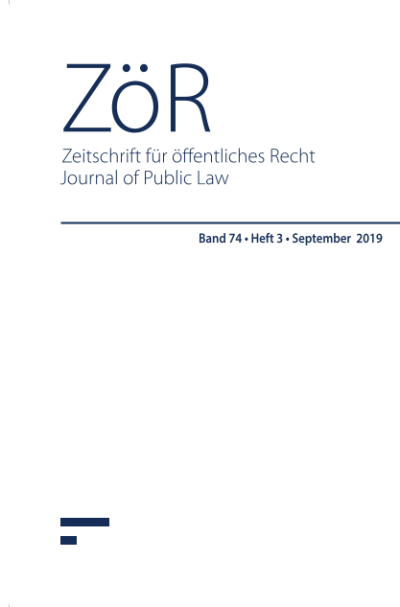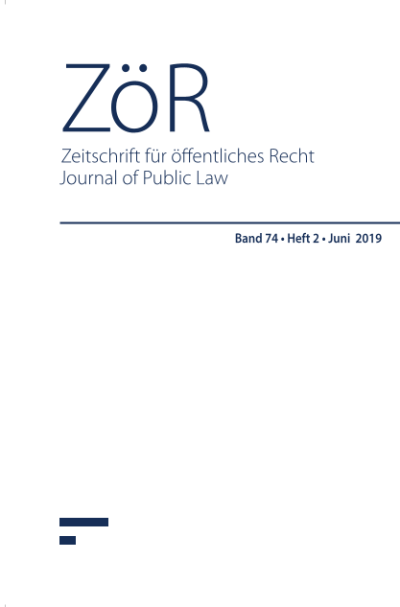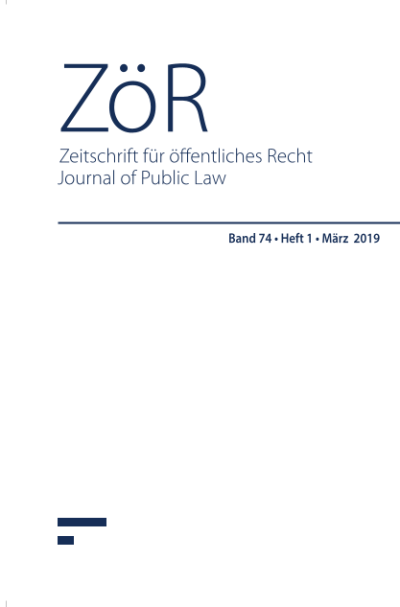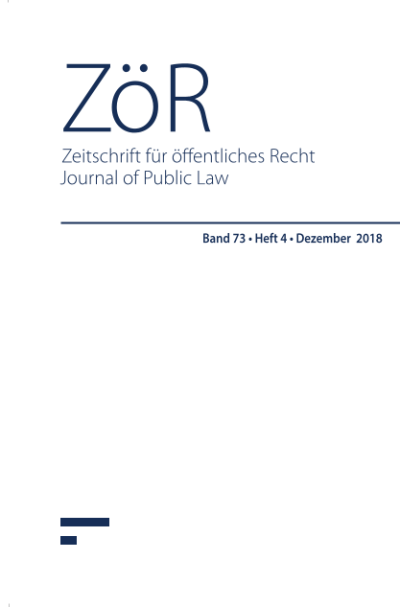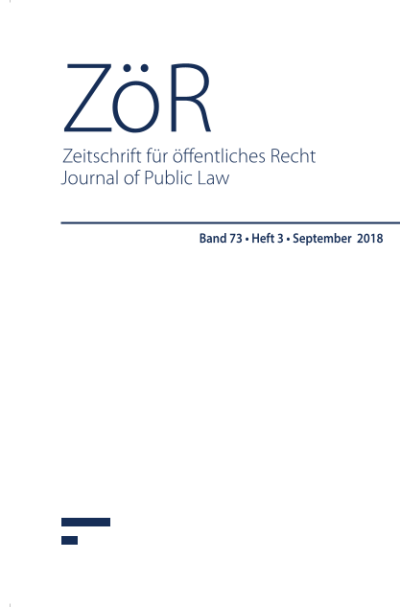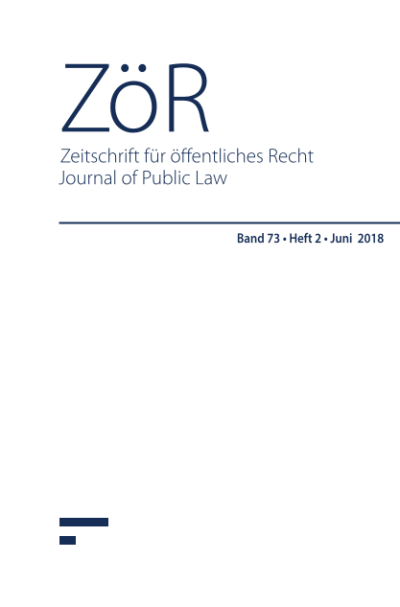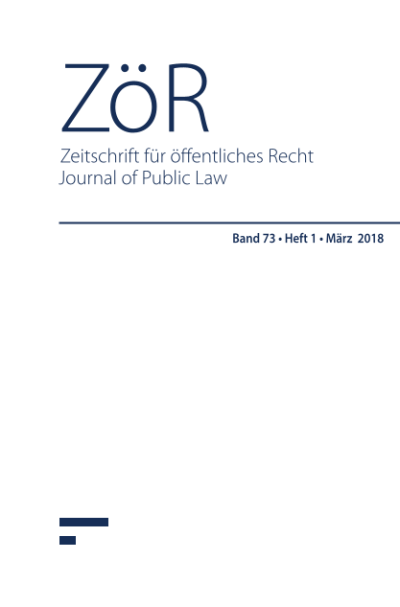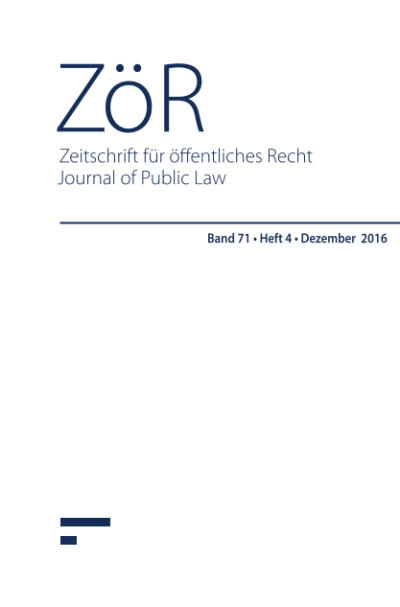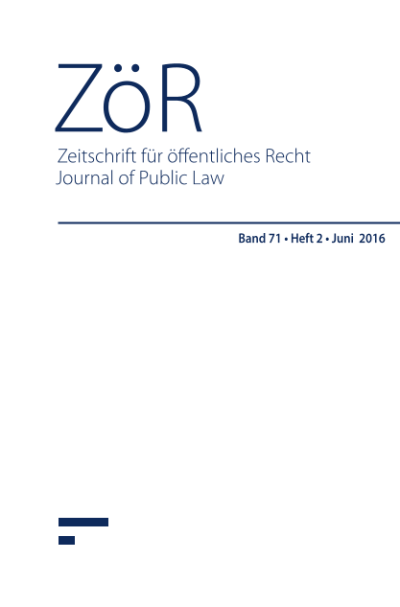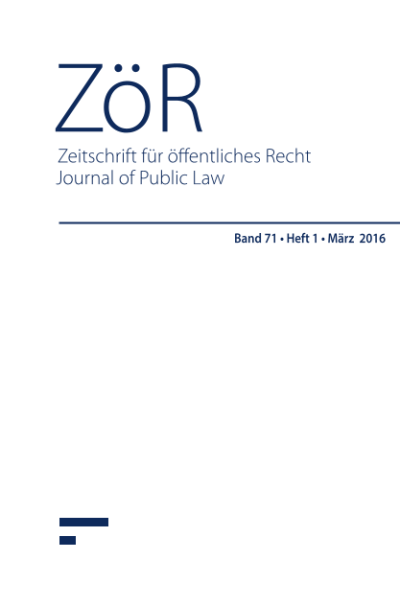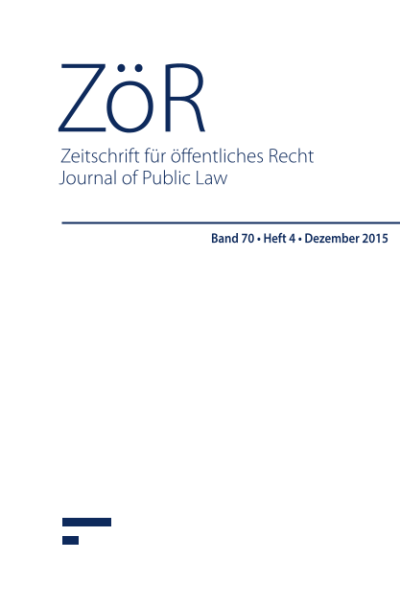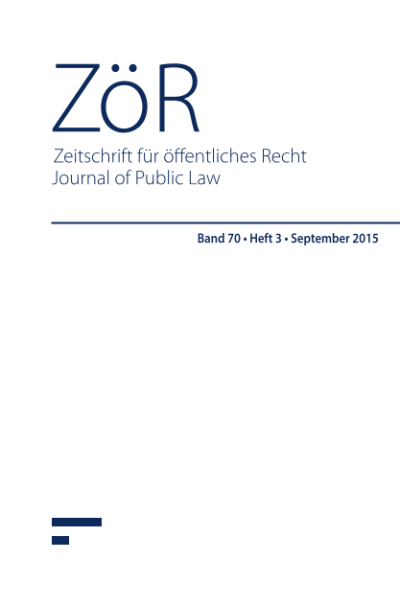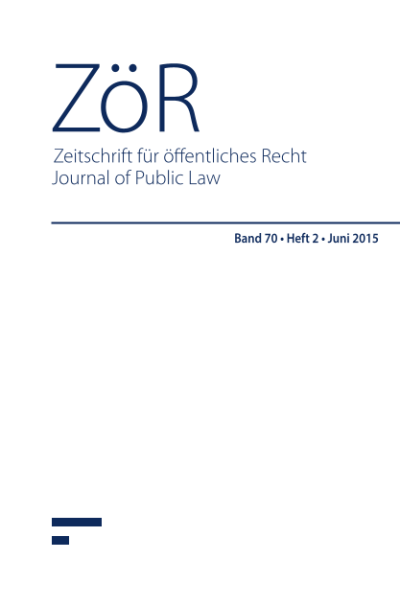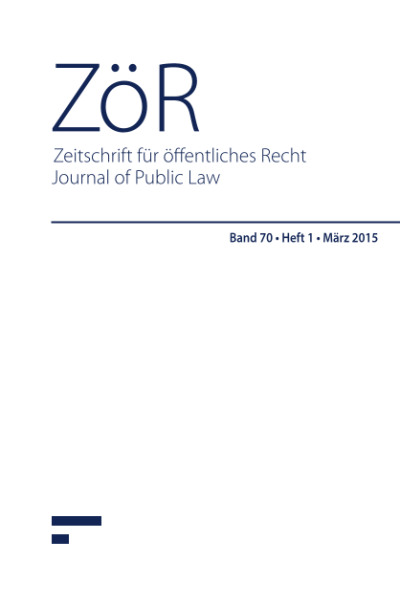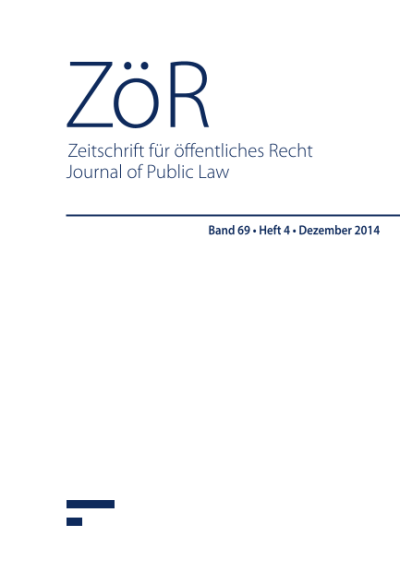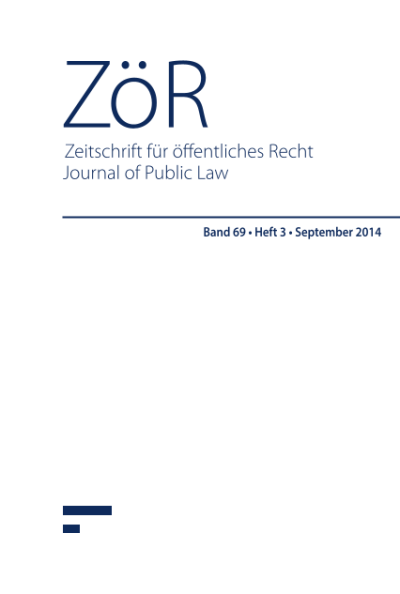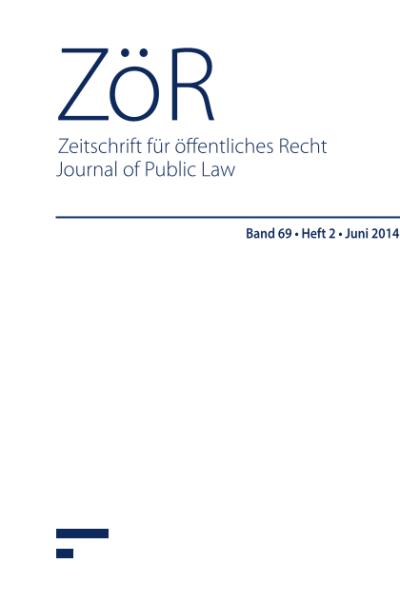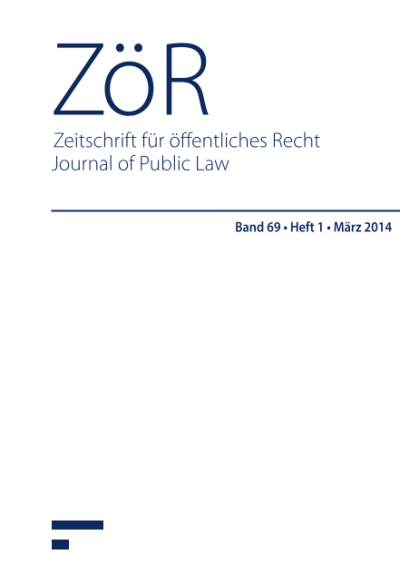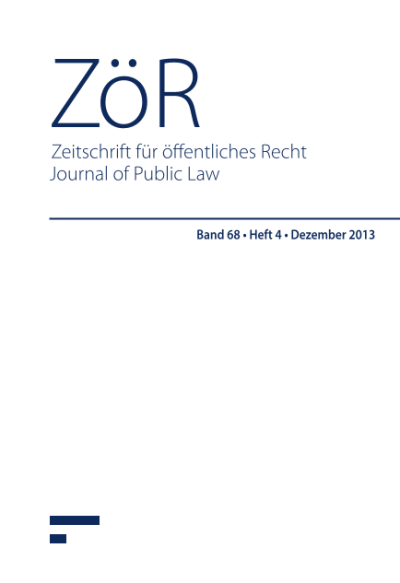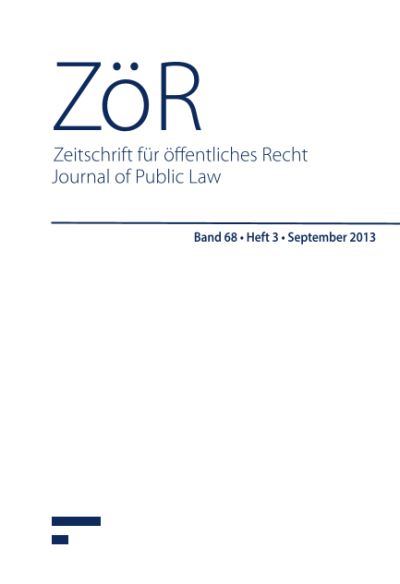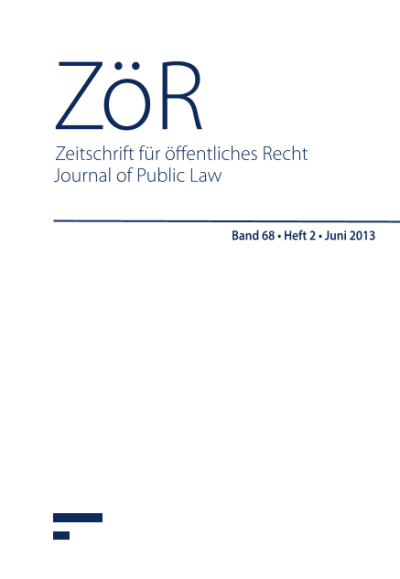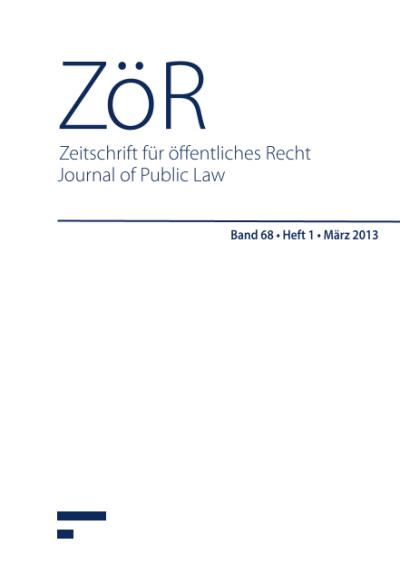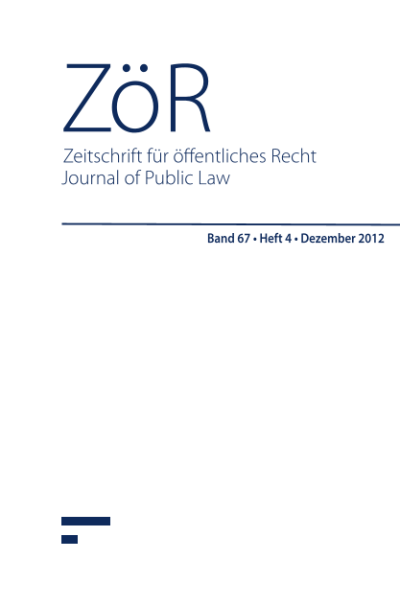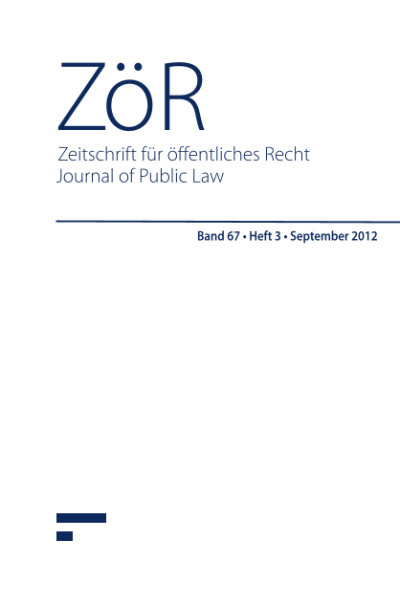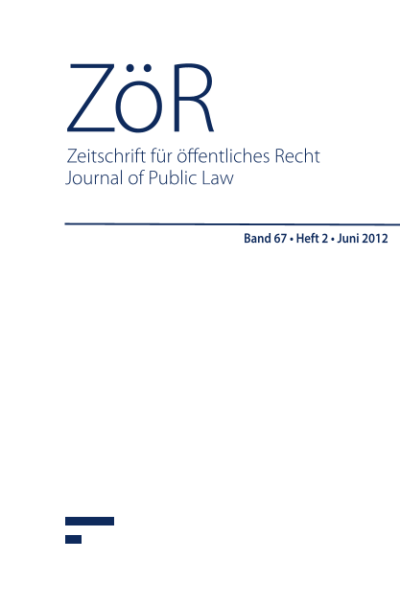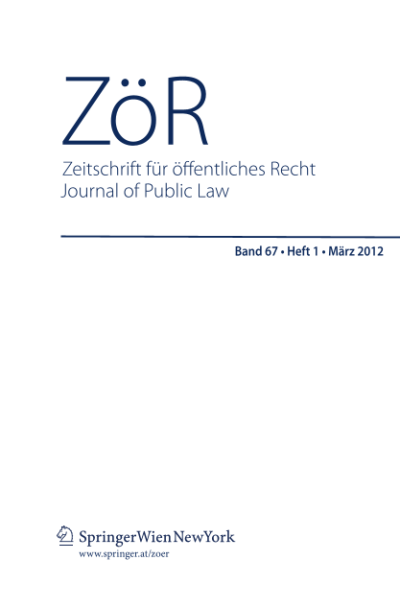Was ist neu im Verlag Österreich?
Erfahren Sie es zuerst!
- ISSN Online: 1613-7663
160,00 €
inkl MwStInhalt der Ausgabe
S. 313 - 329, Aufsatz
From the Federalist Papers to Hans Kelsen’s “Dearest Child”: The Genesis of the Austrian Constitutional Court
S. 331 - 352, Aufsatz
Dangerous or Endangered Constitutional Courts? A View from among and within the Branches of Power
S. 353 - 394, Aufsatz
The Camel’s Dilemma. Critical Reflections on the Political Nature of Constitutional Courts
S. 395 - 411, Aufsatz
The Austrian Constitutional Court after 100 Years: Remodelling the Model?
S. 439 - 450, Aufsatz
The Influence of the Austrian Constitutional Court on the Constitutional Court of the Principality of Liechtenstein
S. 451 - 468, Aufsatz
Imitation, Adaptation, and Further Development: The German Federal Constitutional Court and the Austrian Model
S. 469 - 490, Aufsatz
The Austrian Influence on Hungarian Constitutional and Administrative Law and Scholarly Literature (1920–2020)
S. 491 - 500, Aufsatz
Wittgensteinsche Einleitung in das Grundlagenfach RechtsphilosophieA Wittgensteinian Introduction to Legal Philosophy as a Foundational Discipline
Der erste Teil dieses Aufsatzes beschäftigt sich mit der Frage, wessen normative Bedeutungszuschreibungen für die Existenz von Rechtsordnungen relevant sind: die der Rechtspraktiker oder die der Rechtswissenschaftler. Der Aufsatz argumentiert, dass Rechtspositivisten die Bedeutungszuschreibungen von Praktikern als geltendes Recht ansehen müssen, da die Wirksamkeit einer Rechtsordnung die Wirksamkeit von angewandten und befolgten Normen ist. Bei näherer Betrachtung stellt sich heraus, dass diese Zuschreibungen Praktiken rechtlichen Wissens entstammen, die ihren Zweck und ihre Pointe kritisch reflektieren. Der zweite Teil des Aufsatzes befasst sich mit der Rolle der Rechtsphilosophie und verwirft die Auffassung, diese sei als ein „Grundlagenfach“ zu betrachten. Vielmehr ist sie ein Modus der Selbstreflexion, der es rechtlichem Wissen erlaubt, sich aus den Verstrickungen mit Geld und Macht zu emanzipieren.
S. 501 - 522, Aufsatz
Ist die Grundnorm demokratisch?Is the Basic Norm Democratic?
It has been repeatedly asserted that Hans Kelsen’s theory of the basic norm is isolated from his democratic theory. Accordingly, it is widely accepted that the basic norm is neutral or even indifferent to democracy. Against this background, this article tries to explore Kelsen’s understanding of the basic norm in light of his democratic theory so as to show that the presupposition of the basic norm is closely related to the idea of democracy. As is argued in this article, as a functional surrogate of the classic constituent power, the basic norm serves to overcome the myth that the validity of a democratic constitution must be justified through referring to a real-psychological will, especially to the will of the people. In this way, the basic norm contributes to the realization of a worldview that is characteristic of relativism and objectivism. Moreover, the democratic significance of the basic norm also lies in the fact that, unlike the traditional theory of the constituent power, Kelsen’s legal theory construes the basic norm as a fiction in the sense of Hans Vaihinger’s. Precisely with its fictive character, the basic norm makes clear that, for a well-functioning democracy, what is crucial is not to refer to the will of the people as an absolute and unchallengeable authority, but rather to focus on the lawmaking process itself and thereby to ensure the possibility of compromise between people with conflicting interests. Viewed this way, the basic norm is democracy-oriented particularly because it contributes to the multiple realization of individual freedom.
S. 523 - 548, Aufsatz
Raising the Bar: The Development of Docket Control on the Court of Justice
S. 549 - 585, Aufsatz
Der Bescheid als Vehikel zur dynamischen Entwicklung im Dienste des RechtsschutzesThe Austrian Doctrine of Individual Administrative Acts as an Instrument for Dynamically Developing the Protection of Rights
Das „typengebundene“ öffentlich-rechtliche Rechtsschutzsystem des B-VG, das (neben der rechtsschutzfähigen Verordnung) über Jahrzehnte nur den Bescheid als Beschwerdegegenstand kannte, wurde der Vielfalt hoheitlichen Verwaltungshandelns in Österreich lange nicht gerecht. Zu schmerzlichen, klaffenden Rechtsschutzlücken kam es dank einer extensiven Interpretation des verfassungsgesetzlichen Bescheidbegriffs durch den VfGH und spätere „Bescheidkonstruktionen“, die ein Unterlaufen des Systems verhindern sollten, aber weitgehend nicht. Dies ist vor allem ein Verdienst der Verfassungsgerichtsbarkeit. Der VfGH scheint vom Grundgedanken auszugehen, das Rechtsstaatsprinzip der Bundesverfassung verlange einen bestehenden Rechtsschutz bei jedwedem Eingriff in subjektive Rechte. Dieser These wird hier ausweislich historischer Argumente widersprochen und auch gezeigt, dass der VfGH hier selbst nicht immer konsequent vorgeht. Um noch bestehende Rechtsschutzlücken zu schließen, wäre eine endgültige Aufgabe des – im Laufe der Jahrzehnte sukzessive ausgebauten – typengebundenen Rechtsschutzsystems und stattdessen die Einführung einer allgemeinen Rechtswegegarantie nach dem Vorbild des Art 19 Abs 4 dGG anzudenken.

